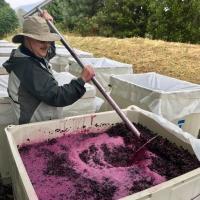-
Welcome to the eG Forums, a service of the eGullet Society for Culinary Arts & Letters. The Society is a 501(c)3 not-for-profit organization dedicated to the advancement of the culinary arts. These advertising-free forums are provided free of charge through donations from Society members. Anyone may read the forums, but to post you must create a free account.
Wine Wars
-
Similar Content
-
Shaoxing Wine 1 2
By liuzhou,
- 45 replies
- 24,925 views
-
- 283 replies
- 76,304 views
-
- 2 replies
- 2,158 views
-
- 0 replies
- 2,148 views
-
- 2 replies
- 3,026 views
-
-
Recently Browsing 0 members
- No registered users viewing this page.




Recommended Posts